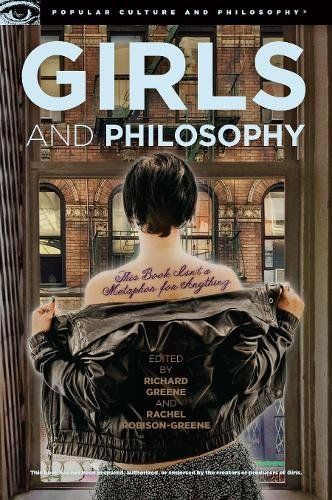
Girls and Philosophy This Book Isn't a Metaphor for Anything
The drama-comedy show Girls—often under-rated by being perceived as Sex and the City for the Millennial generation—has made TV history and provoked controversy for its pitilessly accurate portrayal of four oddly sympathetic twenty-something female characters, notable for their self-absorption, empathy deficits, and ineptitude with relationships. Among other breakthroughs, it is the first show to depict the sex act among the alienated young as nearly always awkward and unfulfilling. In Girls and Philosophy, a team of diverse yet always sensitive, empathic, and ept philosophers approach the world of Girls from a variety of angles and philosophical points of view. Underlying this New York world is the new reality of ambitious yet unfocused young people from comparatively advantaged backgrounds having their expectations chilled by the severe and prolonged economic recession. The writers attack many fascinating issues arising from Girls, including the meaning of authenticity in the twenty-first century, coming of age in a society with no clear guidelines for most of what matters in life,Girls as the only TV show the pop-culture-hating professor Theodor Adorno might have admired, feminist appraisals of these not-very-feminist characters and their frustrations, what the wardrobes of the four mean philosophically, how each of the four deals with the anxiety that comes from inescapable freedom, whether we need to amend the traditional list of seven deadly sins in the context of present-day New York, how the speech of the Millennials illustrates Austin’s theory of speech acts, how the learning of Hannah, Shoshanna, Jessa, and Marnie compares with the ancient Greek theory of the education of the young, and of course, why we once again find it natural to think of women in their early- to mid-twenties as ‘girls’.